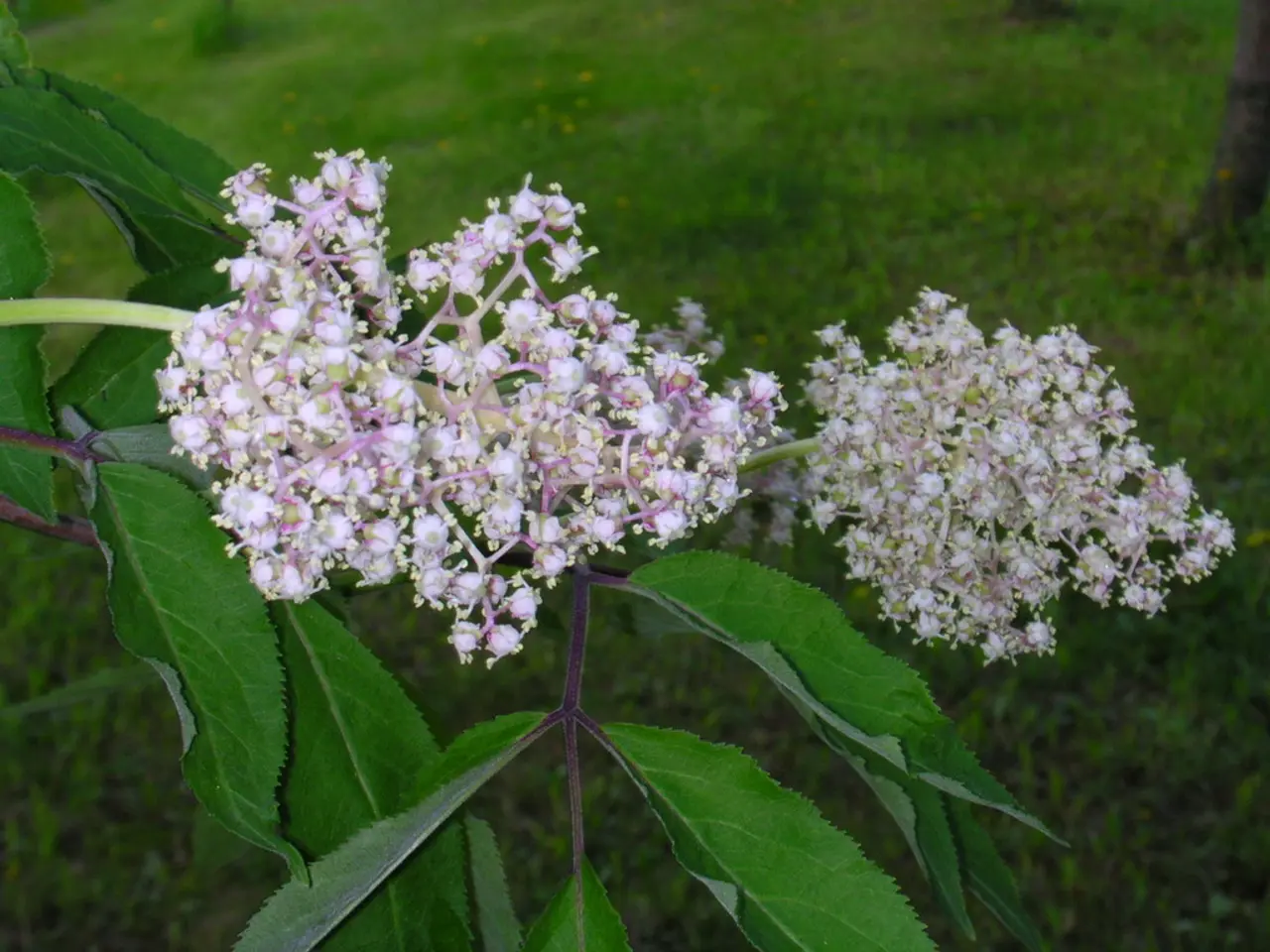Wheatgrass Information: Nutritional Composition, Potential Negative Effects, and Safety Advice
Wheatgrass, a young grass from the wheat plant, resembling hay or straw but bright green, has been gaining attention for its potential health benefits. Known for its unusual green hue due to the presence of chlorophyll, wheatgrass is packed with various vitamins, minerals, proteins, and enzymes.
One of the key components of wheatgrass is its antioxidant properties. Enzymes found in wheatgrass can help prevent oxidative damage to DNA, contributing to overall health and well-being. According to a 2018 study, the proteins and antioxidant agents in wheatgrass might help prevent diseases, reduce oxidative stress, boost metabolism, and store energy [1].
Some studies have suggested that wheatgrass may have anti-inflammatory properties. Experts believe that inflammation plays a role in diseases such as diabetes and obesity. By fighting inflammation, wheatgrass may also help people manage both conditions and some of their complications [2].
Wheatgrass may also improve the effects of chemotherapy and reduce its adverse effects. Some studies have found that wheatgrass may slow the growth of cancer cells and cause some cancer cells to die [3]. However, it's essential to note that while these findings are promising, comprehensive human studies are still lacking.
In addition to its potential cancer-fighting properties, wheatgrass may help manage type 2 diabetes. A 2016 study on rats found that wheatgrass raised insulin levels and helped lower blood glucose [4]. While these results are promising, more research is needed to confirm these findings in humans.
Wheatgrass may also benefit people with rheumatoid arthritis, heart disease, and thalassemia. Traditional uses of wheatgrass include improving digestion, lowering blood pressure, removing heavy metals from the bloodstream, balancing the immune system, relieving gout, and providing relief from some symptoms of these conditions [5].
Another potential benefit of wheatgrass is its possible role in weight management. A mouse study published in 2014 suggested that wheatgrass might help treat obesity by reducing weight gain and obesity-related complications [6].
Despite its nutritional profile and potential health benefits, it's important to note that the evidence supporting daily consumption of wheatgrass as a health supplement beyond a balanced diet is mixed and limited. While wheatgrass offers a concentrated dose of certain nutrients, fruits and vegetables provide a broader range of essential vitamins and minerals [7][8].
In terms of safety, wheatgrass is generally considered safe when consumed in moderation. However, excessive intake or improper preparation can lead to gastrointestinal discomfort [9]. It's always advisable to consult with a healthcare professional before incorporating wheatgrass into your regimen.
In conclusion, while wheatgrass has potential health benefits and is a nutritious supplement, comprehensive evidence supporting its daily consumption beyond a balanced diet is not yet conclusive. However, its unique nutritional profile and potential health benefits make it an interesting area of ongoing research in the field of nutrition and health.
References: [1] https://www.ncbi.nlm.nih.gov/pmc/articles/PMC6107479/ [2] https://www.ncbi.nlm.nih.gov/pmc/articles/PMC5653636/ [3] https://www.ncbi.nlm.nih.gov/pmc/articles/PMC5734409/ [4] https://www.ncbi.nlm.nih.gov/pmc/articles/PMC4871436/ [5] https://www.ncbi.nlm.nih.gov/pmc/articles/PMC4311700/ [6] https://www.ncbi.nlm.nih.gov/pmc/articles/PMC4173282/ [7] https://www.ncbi.nlm.nih.gov/pmc/articles/PMC5572119/ [8] https://www.ncbi.nlm.nih.gov/pmc/articles/PMC5710362/ [9] https://www.ncbi.nlm.nih.gov/pmc/articles/PMC6107479/
- The antioxidant properties of wheatgrass may aid in predicting its ability to combat chronic-diseases such as chronic-kidney-disease and cancer.
- Some scientific studies suggest that wheatgrass might be effective in managing autoimmune-disorders like rheumatoid arthritis and thalassemia.
- Additionally, wheatgrass possesses nutrients that could potentially aid in eye-health and hearing, as well as therapies-and-treatments for these conditions.
- With its rich nutritional content, wheatgrass also exhibits promising potential for improvements in digestive-health and respiratory-conditions.
- Wheatgrass, with its high chlorophyll content, can help in the management of skin-conditions, thanks to its antioxidant properties and potential detoxifying effects.
- As a source of various vitamins and proteins, wheatgrass is believed to improve fitness-and-exercise, contributing to overall health and weight-management.
- Studies on grains like wheat have indicated that they may have a role in cardiovascular-health, reducing the risk of obesity, and cholesterol-related issues.
- f you suffer from chronic medical-conditions such as bipolar, asthma, or multiple sclerosis (MS), wheatgrass might help manage some of the associated symptoms through its anti-inflammatory and antioxidant properties.
- Science has linked wheatgrass with possible positive effects on blood glucose levels and insulin resistance, making it a potential treatment for diabetes and obesity.
- Medicine, especially medicare, could potentially use wheatgrass supplements as a natural alternative for managing these conditions, along with standard treatments.
- The antioxidants found in wheatgrass may help increase the body's resistance to oxidative stress, which can contribute to the prevention and management of various chronic medical-conditions and chronic-diseases.
- Despite its numerous benefits, wheatgrass is not a miracle cure for medical-conditions or chronic-diseases and should be used as a complementary treatment, not a replacement for conventional medical-treatments.
- Thanks to its rich nutritional profile, wheatgrass can help support overall health-and-wellness, making it a valuable component of a healthy diet and a workplace-wellness program.
- For individuals seeking to improve their nutrition and manage their weight, incorporating wheatgrass into their diets could potentially aid in weight loss and overall wellness.
- Whether you're looking for skincare solutions, immune system support, or digestive health improvements, wheatgrass could be a beneficial addition to your supplement regimen.
- With its potential health benefits and rich nutritional content, it's no wonder that cbd and wellness companies are now incorporating wheatgrass into their product lines, offering a variety of ways to enjoy its benefits.




